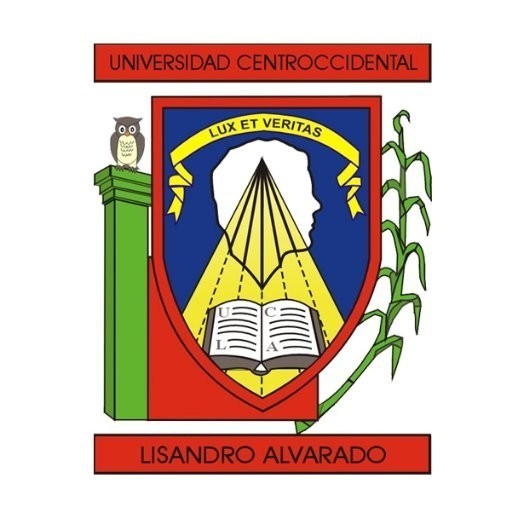Photos of university / #UCLAve
Program Description: Financial Engineering at Central Western University Lisandro Alvarado
The Master’s Degree in Financial Engineering at Central Western University Lisandro Alvarado is a comprehensive postgraduate program designed to equip students with advanced skills and knowledge in the field of finance, quantitative analysis, and risk management. This program aims to prepare graduates for a dynamic career in financial institutions, investment firms, banking, insurance companies, and corporate finance departments by providing a strong foundation in financial theory, mathematical modeling, and practical application.
Students enrolled in this program will engage with a rigorous curriculum that combines core concepts of financial markets, derivatives pricing, portfolio management, and quantitative analysis with practical training in financial software and programming languages such as R, Python, and MATLAB. The program emphasizes the integration of theoretical knowledge with real-world applications, enabling students to develop innovative solutions for complex financial problems. Courses are structured to deepen understanding of stochastic processes, financial risk modeling, algorithmic trading, financial data analysis, and structured products.
The faculty comprises experienced professionals and academicians specializing in finance, mathematics, and computer science, ensuring a high-quality educational experience rooted in current industry trends and research. Throughout the program, students will participate in case studies, simulations, and projects that provide hands-on experience in financial decision-making processes. Additionally, they will learn about global financial regulations, ethical considerations, and the impact of macroeconomic factors on financial markets.
Graduates of the Financial Engineering program will be well-prepared to pursue careers as quantitative analysts, risk managers, financial software developers, and investment strategists. They will possess the analytical acumen and technical expertise necessary to design and implement innovative financial solutions, optimize investment portfolios, and manage financial risks effectively. The program’s multidisciplinary approach ensures that students are equipped not only with technical skills but also with strategic thinking and problem-solving abilities essential for leadership roles in finance.
This program is ideal for individuals with backgrounds in mathematics, engineering, economics, or computer science who are eager to specialize in financial engineering. Upon completion, graduates will hold a competitive edge in the financial industry, capable of adapting to the rapidly evolving landscape of global finance.
The Master’s Degree in Financial Engineering at Central Western University Lisandro Alvarado is committed to academic excellence, innovation, and preparing students for successful careers in the financial sector. It offers a challenging and rewarding educational environment that fosters analytical thinking, creativity, and professional growth, ensuring that graduates are ready to meet the demands of modern financial markets and contribute to the development of new financial products and strategies.
"Financial Engineering at Central Western University Lisandro Alvarado is a comprehensive program designed to equip students with the essential skills and knowledge necessary to analyze, develop, and implement complex financial instruments and strategies. The curriculum integrates principles from finance, mathematics, statistics, economics, and computer science to prepare graduates for dynamic careers in the financial industry, including roles in investment banking, risk management, asset management, and financial consulting. Throughout the program, students will engage with core topics such as quantitative finance, financial modeling, derivatives pricing, portfolio management, and financial risk assessment. Emphasis is placed on practical application through case studies, computer simulations, and projects using advanced software tools. The program also provides a solid foundation in economic theory, monetary policy, and regulatory environments to ensure a well-rounded understanding of the financial landscape. Students gain hands-on experience with programming languages common in financial analysis, including Python, R, and MATLAB, enabling them to develop sophisticated algorithms and automate financial processes. The interdisciplinary approach aims to cultivate analytical thinking, problem-solving abilities, and ethical considerations critical for responsible financial decision-making. By the end of the program, graduates will be prepared to analyze complex financial problems, develop innovative financial products, and contribute effectively to the financial sector. The program promotes continuous learning and adaptability, key traits for success in the rapidly evolving financial markets. With dedicated faculty members who are experts in their fields, students receive personalized mentorship and research opportunities that enhance their academic and professional growth. Central Western University Lisandro Alvarado’s Financial Engineering program aims to produce highly competent professionals capable of driving innovation and excellence in the global financial industry."
The Financial Engineering program at Central Western University Lisandro Alvarado is designed to provide students with a comprehensive understanding of financial theories, quantitative methods, and technological skills necessary for a successful career in finance, investment management, risk analysis, and related fields. Admission requirements typically include a completed application form, academic transcripts demonstrating strong performance in mathematics, economics, and related disciplines, and proficiency in English or Spanish, depending on the language of instruction. Prospective students may also be required to submit standardized test scores such as the SAT or GRE, although specific requirements can vary. Additionally, relevant work experience or internships in financial institutions may enhance applicants' prospects but are not always mandatory.
Applicants need to have a solid foundation in mathematics, particularly calculus, linear algebra, probability, and statistics, to succeed in the program’s rigorous coursework. A background in economics or finance is advantageous, but students from other disciplines with strong quantitative skills are also encouraged to apply. Some programs may require a personal statement or essay outlining applicants’ motivation for pursuing financial engineering, as well as letters of recommendation from previous professors or employers. English language proficiency tests such as TOEFL or IELTS may be required for international students to demonstrate their ability to understand and participate in coursework conducted in English.
Once admitted, students are expected to complete core courses in financial mathematics, derivatives pricing, financial risk management, quantitative finance, and computer programming. Elective courses may include topics such as investment analysis, behavioral finance, financial data analysis, and sustainable finance. The program emphasizes practical skills through computer labs, case studies, and internships, preparing graduates to analyze financial markets, develop financial models, and implement trading strategies using advanced software tools.
Graduates of the Financial Engineering program are equipped to work in investment banks, hedge funds, asset management firms, financial consulting agencies, and regulatory bodies. The program aims to foster critical thinking, analytical skills, and ethical standards in financial practices to ensure students can navigate complex financial environments responsibly. Typically, the program duration spans four years, including coursework, projects, and a final thesis or capstone project, where students apply their knowledge to real-world financial problems. Overall, the program maintains high academic standards, rigorous evaluation, and close industry collaboration to meet the evolving demands of the financial sector.
Financing of the Financial Engineering program at Central Western University Lisandro Alvarado is structured to ensure accessible and sustainable education for students aiming to specialize in financial markets, risk management, and quantitative analysis. The program is primarily financed through a combination of university funding, student tuition fees, government grants, and possible scholarships or financial aid programs offered by the university. Tuition fees are set to be competitive within the region, considering the high quality of education and the sophisticated curriculum involving advanced mathematical and computational techniques.
The university allocates part of its budget specifically for the development and maintenance of the Financial Engineering program, including investments in modern technological infrastructure, specialized laboratories, and online learning resources. These funds support faculty recruitment of qualified experts in finance, mathematics, and computer science, as well as ongoing training to keep the curriculum aligned with current industry standards and innovations.
Students may have the opportunity to apply for scholarships based on academic achievement, financial need, or specific criteria such as research potential or diversity considerations. The university also collaborates with financial institutions and industry partners to create internship and employment opportunities, which can reduce the financial burden on students and enhance their professional prospects.
In addition, there may be governmental or regional grants aimed at promoting higher education in specialized fields like Financial Engineering, thereby contributing to program financing. These grants can help subsidize tuition costs, fund research projects, or support student mobility and exchange programs.
Overall, the financing of the Financial Engineering program is designed to balance institutional sustainability with the goal of providing affordable, high-quality education. The university continuously seeks to expand funding sources and improve financial aid offerings to ensure that talented students from diverse backgrounds can access training in this rapidly evolving field.
Financial Engineering at Central Western University Lisandro Alvarado is a comprehensive academic program designed to equip students with skills in finance, mathematics, and engineering principles. The curriculum focuses on the development of quantitative methods, stochastic models, and computational techniques necessary for analyzing and solving complex financial problems. Students gain a solid foundation in financial markets, derivatives, risk management, and investment strategies, preparing them for careers in banking, asset management, financial consulting, and corporate finance. The program integrates theoretical knowledge with practical applications through case studies, simulations, and project work, often using leading financial software and programming languages. Emphasis is placed on developing analytical thinking, problem-solving abilities, and decision-making skills under uncertainty. The faculty comprises experienced professors and practitioners from the fields of finance, engineering, and mathematics, ensuring a balanced and industry-relevant education. The program also offers opportunities for internships and collaborations with financial institutions, enhancing students' practical experience and employability. Graduates of the Financial Engineering program at Central Western University Lisandro Alvarado are well-prepared for dynamic roles demanding innovative financial solutions and are capable of contributing to the development and implementation of financial strategies in various sectors. The degree aims to bridge the gap between theoretical finance and its real-world application, fostering a new generation of financial engineers who can adapt to the rapidly changing economic landscape.







